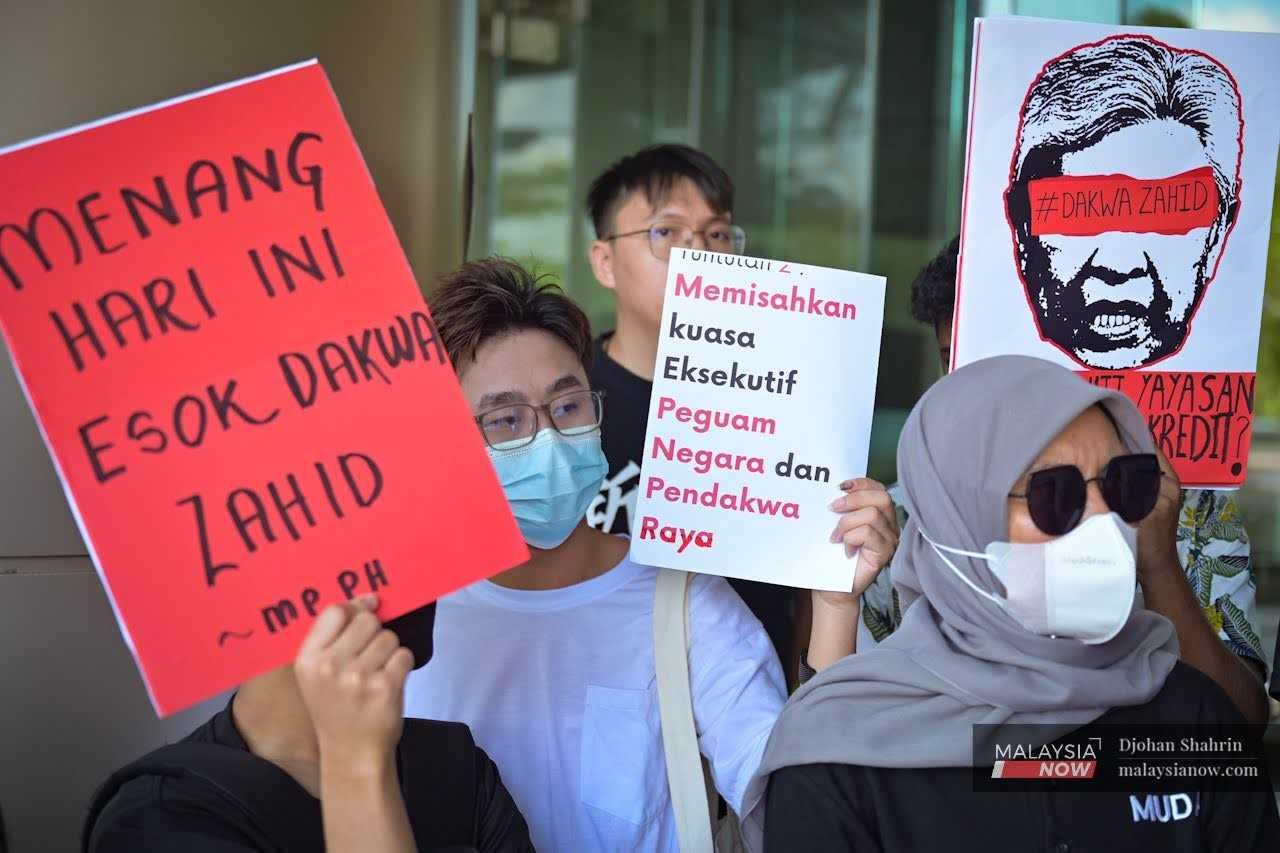The trouble with making good on institutional reforms
While Pakatan Harapan and Prime Minister Anwar Ibrahim have long been associated with the 'reformasi' call, the government has been under fire lately over complaints of unmet promises.
Just In
In 2018, Pakatan Harapan (PH) came to power on a wave of public dissatisfaction with corruption in the country, largely symbolised by former prime minister Najib Razak who was later convicted of graft involving tens of millions of ringgit and placed behind bars for 12 years.
While that government lasted just 22 months, PH, led by Anwar Ibrahim, took Putrajaya once more after the 2022 general election, this time in tandem with its long-time foe, Barisan Nasional (BN).
And while PH has long been associated with Anwar's trademark call of "reformasi", its administration has been dogged by complaints of unfulfilled promises, epitomised in the opposition's jibe of "reformati".
Activist Adrian Pereira said reform efforts in the country were hampered by political instability as well as "little Napoleon" bureaucrats in government ministries.
"The unholy alliance between different political parties has compromised too much, to the point where they cannot reconcile their differences and push for the reformasi agenda to become a reality," he said.
"For now, it is very superficial, surface-level talk. No one really has the proper expertise to translate it into proper policy."
The coalition government formed in the aftermath of the 15th general election saw PH and BN joining hands with Gabungan Parti Sarawak and Gabungan Rakyat Sabah to gain the numbers needed to take Putrajaya.
Before the election, PH had promised, among others, to abolish laws such as the Security Offences (Special Measures) Act 2012 or Sosma, and the Sedition Act 1948.
In August, however, deputy law minister Ramkarpal Singh said the government had no plans to repeal Sosma.
"Repeal is not in the pipeline, but we are looking into improvements," he said.
The government has also been under scrutiny over the issue of media freedom, following blocks placed on websites and social media accounts seen as critical of the administration.
Perhaps the greatest backlash however came over the move to grant Deputy Prime Minister Ahmad Zahid Hamidi a discharge not amounting to an acquittal (DNAA) for 47 charges of corruption linked to charity outfit Yayasan Akalbudi.
The DNAA was requested by the prosecution despite the court ruling that a prima facie case had been established against Zahid, the Umno president and Barisan Nasional chairman.
'No reforms'
Parti Sosialis Malaysia (PSM) said it had submitted a list of proposed reforms after PH's election victory in 2018, when the coalition had formed a committee consisting of figures such as economist Jomo Kwame Sundaram and lawyer Ambiga Sreenevasan.
"But no reforms happened after that," PSM secretary-general Sivarajan Amurugam said.
"Irrespective of whether it is a fully PH government or a unity government, there seems to be no political will. For both governments, if it does not cause them a decline in electoral or popular support, they are reluctant to make any reforms."
Sivarajan said PH had also failed to provide affordable housing, restructure government-linked companies and reform the Malaysian Anti-Corruption Commission.
He also criticised talk of bringing back the goods and services tax but not introducing a wealth tax.
"This is why institutional reforms are so difficult – when you have a 'reformist, progressive' government only in name," he said.
Pereira, the executive director of North South Initiative, said Malaysia needed to raise up intellectuals at the grassroots level to resolve a number of issues, including labour reforms.
"We cannot depend on our politicians because they have shown that they are incapable of running the country," he said, adding that human trafficking, for instance, was still rampant.
He also said that Anwar's Madani government should be given a timeline for fulfilling its promises of reform.
"If it can't, there should be a motion of no confidence in Parliament," he said.
Subscribe to our newsletter
To be updated with all the latest news and analyses daily.
Most Read
No articles found.
